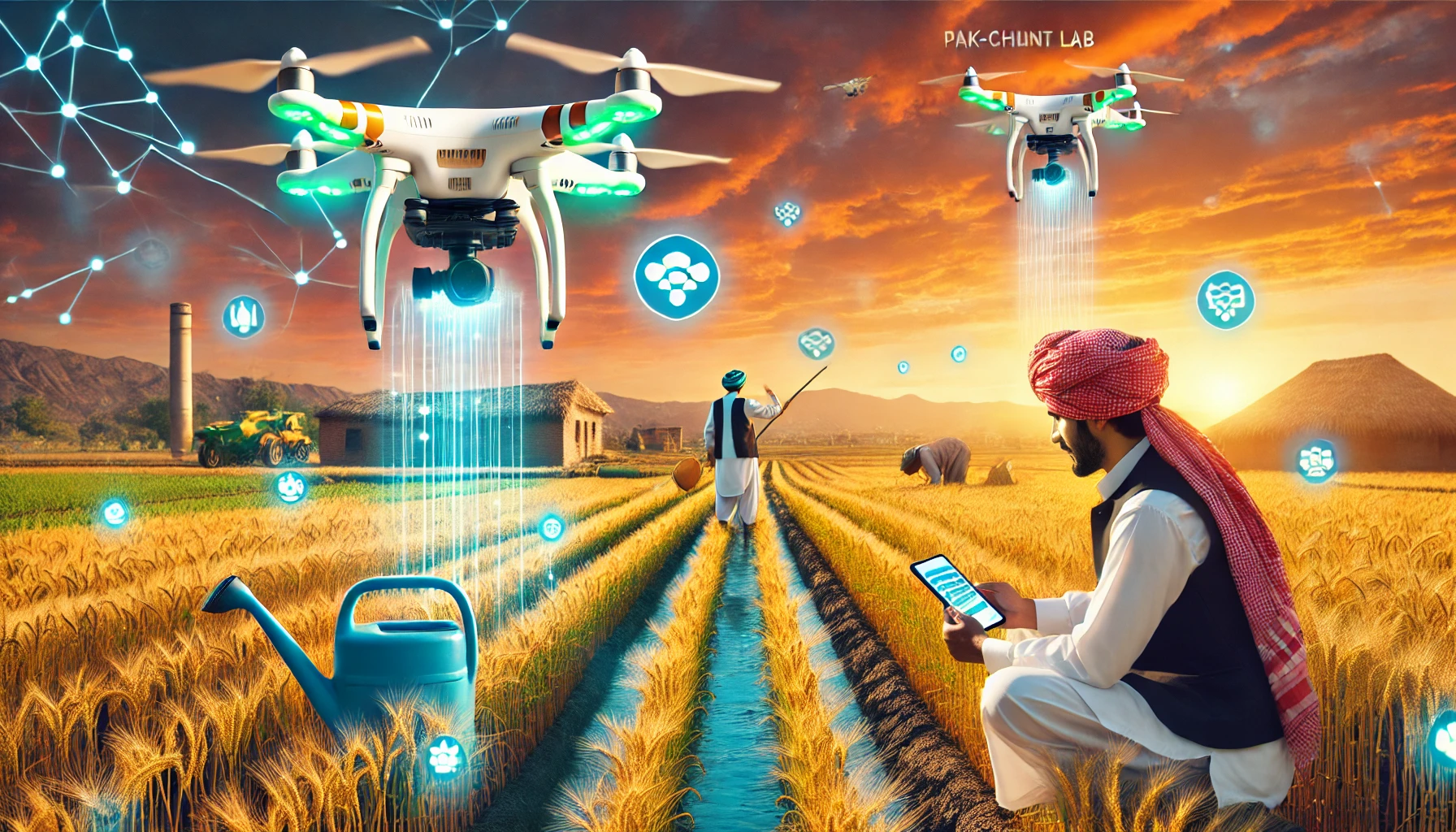ISLAMABAD – The recently established Pak-China Joint Lab for Artificial Intelligence and Smart Agriculture (AI&SA) at the University of Agriculture Faisalabad (UAF) is set to revolutionize Pakistan’s agricultural sector.
In the wheat fields of Punjab province, drones equipped with intelligent management and control systems are replacing traditional manual labor. Farmers can now perform operations such as fertilization and irrigation with just one click on their mobile phones. This technological advancement is part of the China-Pakistan cooperation project, “High-throughput Crop Monitoring Using Computer Vision for Climate Smart Agriculture.”
Punjab, Pakistan’s primary agricultural production area, accounts for about 76% of the country’s annual grain output. This makes it an ideal location for the pilot applications of high-throughput crop monitoring projects. Approximately 600 farmers in Punjab have joined the pilot application.
Dr. Iqrar Ahmad Khan, Vice Chancellor of UAF, emphasized the potential benefits: “If drone spraying technology could be adopted on a large scale across Punjab’s 25,000 villages, it will increase productivity, reduce costs, and significantly promote intelligent agriculture.”
Dr. Wu Jun, the Chinese Director of the lab, explained the process: “We use drones equipped with visual recognition equipment to manage crop monitoring, cultivation, pest and disease analysis, and agricultural production. This includes growth determination, crop health monitoring, water requirement analysis, fertilization, and pesticide application.”
Local farmer Mohammad Malik, initially skeptical, now embraces the technology. “We now have a more accurate grasp of the water and fertilizer needs of crops, which avoids over- or under-watering, thus reducing input costs,” said Malik. His family is optimistic about the potential yield increases from this innovative technology.
Agriculture is a critical sector for Pakistan, accounting for 18.9% of its GDP and employing 44.2% of the labor force. Despite its strong agricultural base, Pakistan is highly vulnerable to climate change and ranks among the top ten countries with the highest number of people facing severe hunger.
The Joint Lab employs nine doctors and several masters and engineers, with Pakistani postdoctoral fellows also being sent to Guangzhou, China, to learn AI technologies. Saqib Ali, a Pakistani researcher at the lab, highlighted the lab’s mission: “Our goal is to provide farmers with real-time data to optimize their planting decisions and ensure community food security.”
Dr. Wu underscored the broader impact: “Bringing AI technology to Pakistan and applying it to agriculture to help local farmers solve the problem of hunger is our most important objective.” The project has received funding support from the World Bank and the Asian Disaster Management Centre, underscoring its significance in addressing climate challenges and enhancing agricultural sustainability.















